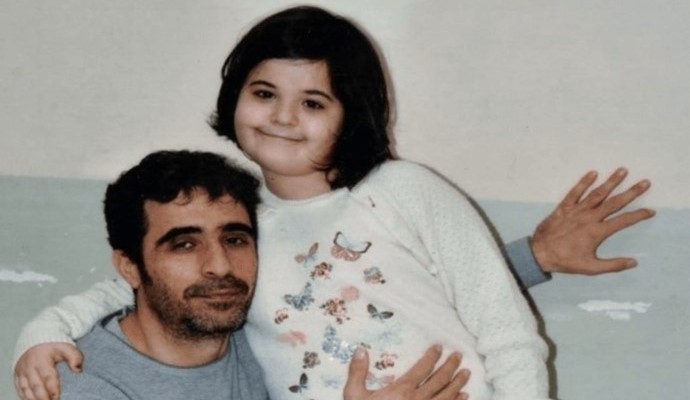Mustafa Özcan Çay, a former staff colonel convicted on coup charges, was denied release from prison by Turkey’s Constitutional Court despite his inability to perform even the most basic tasks such as eating, drinking and using the bathroom without assistance due to advanced stage multiple sclerosis (MS), the Stockholm Center for Freedom reported, citing 15temmuz.info, a website giving voice to soldiers purged from the military by the government.
Çay was a decorated military officer who served in various national and NATO posts. In 2013, following complaints of a limp, he was diagnosed with MS, a potentially disabling disease of the brain and spinal cord that is caused by the immune system attacking the protective sheath that covers nerve fibers and causes communication problems between the brain and the rest of the body. His treatments were going so well that he could even play some sports. Yet, that all changed with his arrest following an abortive coup in July 2016.
Turkey experienced the controversial military coup attempt on the night of July 15, 2016 which, according to many, was a false flag aimed at entrenching the authoritarian rule of President Recep Tayyip Erdoğan by rooting out dissidents and eliminating powerful actors such as the military in his desire for absolute power.
The abortive putsch killed 251 people and wounded more than a thousand others. The next morning, after announcing the coup had been suppressed, the Turkish government immediately started a wide-ranging purge of military officers, judges, police officers, teachers and other government officials. Some 130,000 public servants, including 4,156 judges and prosecutors, as well as 20,610 members of the armed forces were summarily removed from their jobs for alleged membership in or relationships with “terrorist organizations” by emergency decree-laws subject to neither judicial nor parliamentary scrutiny.
Çay was the duty officer on the night of the coup attempt at the İstanbul-based War Academies, graduate schools training staff officers. He was detained and later convicted on coup charges by an İstanbul court.
During his time in prison, he wasn’t given his medication for nearly two years and he wasn’t treated even after MS attacks despite countless requests to the prison administration. Instead of providing him the care he needed, the prison administration only gave him general health screenings during this time. Experts say untreated cases can progress into a more aggressive form of the disease. This was exactly what happened to Çay.
He was finally sent to a fully equipped hospital after he lost the ability to walk. Even then, things didn’t go smoothly. He had to go back and forth between the hospital and the prison several times due to incomplete administrative procedures without being seen by a doctor. Moreover, he wasn’t given the physical therapy he needed.
COVID-19 measures made things even worse. Every time he returns from a hospital visit he needs to stay in a quarantine cell. He has been in quarantine cells for the last four months. Since he is not able to take care of his own needs, another inmate is made to stay with him to help. A neurologist said there wasn’t much to do for him medically at this point as the medication that was prescribed failed to significantly improve his condition.
Prison conditions are very unaccommodating for a person with so many physical limitations. There are no toilet seats, all restrooms have squat toilets. His fellow inmates made a makeshift toilet seat for him out of a plastic chair. He currently uses adult diapers and a urinary catheter.
Yet, despite all his difficulties, Çay was denied release by the Constitutional Court with the reasoning that he had access to medical care and that there was no evidence showing that his staying in prison posed a serious risk of bodily or mental harm.
The violation of prison inmates’ basic rights in Turkey is one of the topics raised frequently by activists and human rights defenders. Ömer Faruk Gergerlioğlu, a prominent human rights activist and an MP from the pro-Kurdish Peoples’ Democratic Party (HDP), says critically ill political prisoners are not released from prison “until it reaches the point of no return.” He depicted the deaths of seriously ill prisoners in Turkey who are not released in time to receive proper medical treatment as acts of “murder” committed by the state.
Gergerlioğlu claims that that prisoners do not have proper access to healthcare facilities such as an infirmary or a hospital. “They have trouble being sent to a prison infirmary or arranging an appointment with a hospital, and when they do succeed in getting an appointment, they are left to the mercy of the gendarmes to take them to the hospital. Sometimes they don’t have a vehicle or personnel to transport inmates. Sometimes the patients need complicated tests and need to go to the hospital many times, which prolongs the whole process and make it much more complicated. The pandemic has made matters worse. They sometimes prefer not to go to the hospital to avoid a 14-day quarantine upon their return to prison. When they at last manage to get a medical report deeming them unfit to remain in prison, this time the courts refuse to act on the report. Eventually, by the time the prisoner is released, they have lost a lot of weight and their illness has worsened considerably,” he said.
According to Gergerlioğlu, sick prisoners are released when the authorities realize they will die soon. “They don’t want to be held responsible if an inmate dies in prison. So they release them in a hurry when they realize the prisoner is near death. And they do indeed die a short time after their release. When I ask the Justice Ministry for the number of deaths in prison, they give very low figures — very low because they don’t want prisoners to die in prison. They keep them until the very last moment, and when they realize they’re going to die, they release them immediately.”

